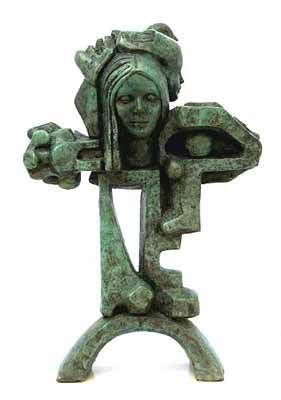

Pantheism is the doctrine that the universe conceived of as a whole is God and, conversely, that there is no God but the combined substance, forces, and laws that are manifested in the existing universe. The cognate doctrine of panentheism asserts that God includes the universe as a part though not the whole of his being.
The adjective pantheist was coined by the rationalist freethinker John Toland in his book Socinianism Truly Stated (1705).
The noun pantheism was first used a few years later by one of Toland's opponents.
K.C.F. Krause introduced the term panentheism in 1828 as a designation for his own philosophy. Both of these terms have been applied retrospectively to aspects of numerous philosophical traditions, both Eastern and Western.
There are several discernible types of Pantheism, ranging from those that attribute consciousness to nature as a whole (panpsychism) to those that interpret the world as merely an appearance and ultimately unreal (acosmic pantheism), and from the rational Neoplatonic, or emanationistic, strain to the intuitive, mystical strain.
A mingling of these types characterizes Hindu and Buddhist doctrines; pantheism of one form or another is deeply rooted in the Vedas, the Upanisads, and the Bhagavadgita. Numerous Greek philosophers, notably Xenophanes, Heracleitus, Anaxagoras, Plato, Plotinus, and the proponents of Stoicism, contributed to the foundations of Western pantheism.
Through Neoplatonism and Judeo-Christian mysticism, the tradition was continued in the medieval and Renaissance periods by John Scotus Erigena, Meister Eckehart, Nicholas of Cusa, Giordano Bruno, and Jakob Bohme.
It was at the advent of the modern era in Western philosophy that the Jewish rationalist Benedict Spinoza (1632-77) formulated the most thoroughly pantheistic system. Spinoza insisted that there could be by definition only one unlimited substance possessing an infinitude of attributes.
Therefore, God and Nature are but two names for one identical reality; otherwise, God-and-world would be a greater totality than God alone. The necessity of God thus implies the necessity of the world and precludes any possibility of freedom.
Pantheism has traditionally been rejected by orthodox Christian theologians because it is interpreted to obliterate the distinction between the creator and creation, to make God impersonal, to imply a purely immanent rather than transcendent deity, and to exclude human and divine freedom.
In the words of Samuel Johnson, the doctrine "confounds God with the universe."
Panentheism constitutes a middle way between the denial of individual freedom and creativity that characterizes many of the varieties of pantheism and the remoteness of the divine that characterizes classical theism.
Though elements of quasi-panentheism reach as far back as Plato's Laws, it is in 19th-century German Idealism (Johann Gottlieb Fichte, Friedrich Wilhelm Joseph von Schelling, G.W.F. Hegel) and 20th-century process philosophy (Alfred North Whitehead) that the doctrine receives systematic elaboration. Charles Hartshorne, a follower of Whitehead, provided the definitive theological analysis of panentheism, based upon the analogy of an organism (God) comprising individual, semiautonomous cells (all known and unknown constituents of reality).
Pantheism Wikipedia